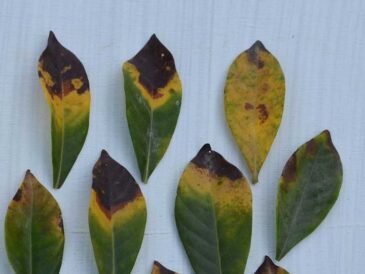Yes, Really!
Most garden spiders are harmless to humans and prey on flies, mosquitoes, moths, and beetles.
Why Keep Them
They act as your natural pest control, especially in corners and under leaves.
7. Parasitic Wasps
Tiny but Mighty
These wasps lay their eggs in or on pest insects like tomato hornworms, ultimately killing the pest from the inside out.
Non-Aggressive
They don’t sting humans and are invisible heroes in organic gardens.
8. Bees (All Types)
More Than Just Honey
Bees are crucial pollinators for fruits, vegetables, and flowers.
Did You Know?
Without bees, many crops would fail to produce food. Protect them at all costs!
9. Dragonflies
The Mosquito Killers
Dragonflies help control mosquito populations and also snack on gnats, midges, and flies.
Good to Know
They love ponds and water features, so if you have one, you’re likely already benefiting from them.
10. Assassin Bugs
The Name Says It All
These insects are garden bounty hunters. They stab and suck out the juices of harmful insects like caterpillars and stink bugs.
Handle with Care
They can bite humans if mishandled, but they’re not aggressive.
11. Damsel Bugs
Who Are They?
Similar to assassin bugs, damsel bugs feed on thrips, caterpillars, and aphids.
Attract Them With
Alfalfa and clover are their favorite plants.
12. Soldier Beetles
Dual Purpose
As adults, they pollinate flowers, and as larvae, they hunt pests in the soil.
Safe and Friendly
Soldier beetles don’t bite or sting and are fantastic for balancing your garden’s ecosystem.
Why It Matters: The Balance of the Garden
Gardens are like mini jungles—teeming with life, where everything has a role. The key to a healthy, low-maintenance garden is allowing nature to take care of itself. By protecting and encouraging these beneficial bugs, you can reduce your dependence on pesticides and grow stronger, more vibrant plants.
How to Attract Beneficial Bugs to Your Garden
- Plant diversity: Flowers like marigolds, cosmos, and sunflowers attract good bugs.
- Avoid pesticides: They kill both good and bad insects.
- Provide shelter: Small rock piles, logs, and native plants give bugs a place to live.
- Add water sources: Even a shallow dish with pebbles and water helps tiny insects survive.
Conclusion
So the next time you see a bug in your garden, take a closer look. Is it chomping your tomatoes, or is it hunting the thing that is? Not all bugs are pests—some are your greatest garden allies. Keep these 12 beneficial insects around, and you’ll create a garden that thrives naturally.
FAQs
1. Should I kill spiders in my garden?
No. Most garden spiders are beneficial and help control pests.
2. Are all wasps good for gardens?
Not all, but many are—especially parasitic wasps that attack crop-damaging pests.
3. How can I tell a good bug from a bad one?
It takes some research, but a general rule: if the bug is attacking other bugs, it’s likely a helper.
4. Can beneficial bugs survive if I use insecticides?
Unfortunately, no. Most insecticides are non-selective and harm all insects.
5. Do I need to buy beneficial bugs, or will they come naturally?
You can buy them, but with the right plants and environment, many will find their way to your garden on their own.




